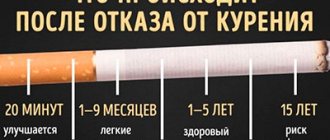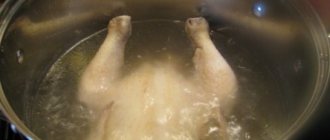Nicotine
When smoking, snorting, chewing tobacco, or using an e-cigarette, nicotine enters the human body. For some time, this neurotropic poison lingers in the body. Medical tests can detect traces of it in the body. In the article, the reader will find out how long it takes for the alkaloid to be completely eliminated from the body.
Content:
- How does alcohol get into urine?
- Symptoms that indicate a person is drunk
- What happens to drinking in the human body?
- How long does alcohol stay in urine?
- What determines the speed of urine purification?
- Is it possible to speed up the cleansing of the body?
- Can I drink before taking a urine test?
If a person plans to take laboratory tests, he should know how much alcohol remains in the urine, how alcohol generally affects diagnostic results, and what drinking can lead to on the eve of collecting the material. With modern laboratory techniques, doctors can easily determine how long ethanol has been used.
Therefore, you need to be careful when planning special events - unsatisfactory test results often play a cruel joke on patients.
Nicotine and the brain
The effect of the alkaloid on the brain is associated with the activation of α4β2 receptors. They make up more than 80% of all H-cholinergic receptors in the central nervous system. Nicotine's affinity for them is so high that even acetylcholine cannot compete with it. These receptors take part in the release of mediators such as dopamine, GABA, and glutamate. This is how smoking improves attention and memory.
The effect of nicotine on the human brain is:
- in stabilizing the emotional background;
- in reducing anxiety;
- in increasing resistance to stress;
- in accelerating the reaction;
- in improving the perception of visual and auditory information.
In addition, the alkaloid activates metabolism in brain tissue and delays cell death. This circumstance formed the basis for clinical studies that have proven the effectiveness of nicotine as a means of preventing atrophic brain lesions (for example, Alzheimer's disease).
The effect of relaxation and increased resistance to stress, for which acetylcholine is responsible, plays a cruel joke in the formation of addiction. Since nicotine binds better to receptors, the body stops producing the mediator on its own. If a person decides to give up cigarettes or, due to various circumstances, cannot satisfy his nicotine hunger immediately, anxiety and irritability appear. Gradually, the addict begins to resort to smoking not in order to feel great, but in order to eliminate discomfort.
Symptoms of physical dependence are due in part to endogenous opioids in the brain. A constant supply of nicotine promotes the release of endorphins and enkephalins, which play an important role in reducing pain.
Nicotine “vigor” and “attractive slimness” are the result of the influence of the alkaloid on a certain group of neurons in the brain. These cells secrete substances that are involved in reducing appetite, breaking down fats and maintaining a high level of activity. When quitting smoking, a person may feel the need for large quantities of food and become lethargic and drowsy.
How does alcohol get into urine?
Alcohol first enters the stomach. There it is broken down and metabolized. Certain products of its breakdown are absorbed from the stomach into the blood and very quickly spread throughout the body. Their molecules penetrate the kidneys, liver, and are excreted in the urine.
Alcohol breakdown products appear in urine approximately an hour and a half after drinking.
As a result, the degree of intoxication begins to decrease - the drinker gradually sobers up.
In the blood, the concentration of alcohol decreases faster, in urine - more slowly
. This is explained by the fact that about 90% of the consumed dose ends up in the urine.
Alcohol is excreted not only through the organs of the urinary system, but also together:
- with exhaled air (that is, due to the activity of the lungs);
- through the skin along with sweat;
- with breast milk (if we are talking about a young mother who is breastfeeding).
How long alcohol stays in urine directly depends on the type
the drink
used (its quality and strength),
dose and individual characteristics of
the drinker’s body.
How long does it take for nicotine to leave the body?
The dangers of nicotine have been known for a long time. It has a detrimental effect on almost all organs and systems of the body. It affects receptors and nerve cells in the brain and muscle tissue.
For those who have decided to get rid of tobacco addiction forever, the question becomes relevant: how long does it take for nicotine to leave the body? Many smokers mistakenly believe that by quitting smoking they will immediately rid the body of harmful substances that have accumulated in the body over the entire period of addiction to tobacco. Actually this is not true.
What happens to drinking in the human body?
Conventionally, all processes associated with alcohol after its consumption can be divided into three successive stages:
- Suction.
Ethanol breaks down and penetrates the blood, reaching the internal organs. - Selection.
Alcohol breakdown products end up in almost all metabolites. They can be found in saliva, blood, urine, and exhaled air. - Oxidation.
Most of the alcohol leaves the body in urine. The residues penetrate into the reproductive and nervous systems and are deposited there for some time.
The more often an addict drinks, the stronger the toxic attack on internal organs and the central nervous system.
. Over time, the body does not have time to cleanse itself efficiently and completely. Then chronic intoxication develops, fraught with serious health complications.
Nicotine and the cardiovascular system
As described earlier, the effect of nicotine on both parts of the autonomic nervous system is realized through changes in the lumen of blood vessels, heart rate, and fluctuations in blood pressure. Arterial spasm, tachycardia and increased pressure are the result of the release of adrenaline. The heart begins to work in emergency mode, pushing blood through narrowed vessels. It is forced to cope with the increased load. If a person smokes continuously, the blood vessels are constantly spasmed.
Nicotine also reduces the level of a substance called prostacyclin, which helps large and small arteries relax after contraction. The blood supply to all organs deteriorates, including the most important ones - the brain and heart. In fact, a smoker lives in a state of hypoxia.
Active and passive smoking destroys the membranes of cells located on the inner surface of blood vessels. Thus, changes in the aortic endothelium are observed even in infants 1 month of age, if their mother does not part with a cigarette. The dangerous effect of nicotine on human blood vessels can lead to sudden death. The risk of acute coronary syndrome in adult passive smokers compared with those isolated from tobacco smoke increases by almost 100%.
Activation of lipolysis and damage to vessel walls accelerate the development of atherosclerosis of any localization.
In addition, nicotine affects the rheological properties of blood. It increases the ability of platelets to stick together. Small clots form in the vessels. Blood viscosity increases, flow rate decreases. The presence of damage to the vascular wall leads to adhesion of formed elements and the formation of wall thrombi.
So the effect of nicotine on the human heart and blood vessels is to increase the risk of developing:
- arterial hypertension;
- coronary heart disease;
- heart attack, stroke;
- gangrene.
How long does alcohol stay in urine?
The higher the degree, the slower the alcohol is excreted:
- Forty-degree drinks
stay in the blood for about three days, in the urine - from four to six. - Low-alcohol compounds
(beer, gin and tonic, etc.) are preserved less. So, if you drink them in an amount of 100 ml, then within an hour or two the urine will not contain ethanol impurities. If you take a dose of 300 ml, the elimination time will increase to three hours. - Champagne
, used in an amount of 100 ml, ceases to be detected in urine after an hour and a half. It will take quite a lot of time to “neutralize” 500 ml of sparkling wine - about nine hours.
If the drinker has delayed urination or was unable to go to the toilet, the cleansing process is delayed.
Interesting to know:
thin people eliminate alcohol more slowly. Conversely, individuals with increased body weight are more likely to clear toxic alcohol toxins.
How to speed up the process
Using certain methods, you can influence the rate at which nicotine and other harmful substances resulting from its breakdown are eliminated from the body, accelerating this process. One way is to use special medications that promote the release of toxic substances.
These include:
- Detoxify instant cleanse. Promotes the flushing of nicotine metabolites from the blood through the urinary tract.
- Nocotine Cleanse. Provides rapid detoxification. After 3 days of use, toxins are removed from the body.
- Acetylcysteine. Used as a solution for inhalation, cleanses the respiratory tract.
- Antussin. The plant-based drug has coughing properties.
Playing sports, visiting a bathhouse and sauna, and performing breathing exercises will help speed up the process of cleansing the body of nicotine. When visiting a steam room, the pores of the skin open, and waste and toxins are actively released through them. Intense physical training helps saturate the lungs with oxygen, which improves blood circulation and metabolism.
The effect will be more pronounced if classes are carried out in the fresh air. In addition, increased sweating, which is observed during intense sports exercises, helps remove harmful microelements. By slightly adjusting your diet, you can speed up the removal of nicotine from the body.
What determines the speed of urine purification?
Drinkers often wonder why the duration of urine cleansing differs so much from person to person. This phenomenon is explained by the following factors:
- The quality of the alcohol consumed.
Of particular danger are technical alcohol-containing liquids, which are used by some alcoholics due to the lack of real “intoxicants”. This alternative is moving towards a meeting with death. - Volume.
The larger it is, the more severe the intoxication. 100 ml are excreted many times faster than 200 or 500. - The degree of the drink taken.
Concealing the fact of taking low-alcohol compounds is always easier than drinking cognac or vodka. - Physiological characteristics of the patient.
This refers to age, gender, body weight, and the presence of concomitant chronic diseases. Much also depends on diseases that prevent normal urination - if they exist, natural detoxification reactions are inhibited.
How long does it take to eliminate nicotine?
The half-life of nicotine is one and a half to two hours. Therefore, if you do not continue to take it in one form or another, it will completely leave the body in a few days. This means that after 120 minutes the nicotine concentration will be halved, after another two hours the remaining amount will be halved again, and so on, until nicotine is completely gone from the body.
On average, nicotine elimination occurs in two to three days. The speed of the process can be influenced by factors such as a person’s age, state of health, method of nicotine consumption, length of smoking history, number of cigarettes smoked, and lifestyle.
- The older a person is, the slower the metabolic processes in the body are, and, accordingly, the elimination of nicotine takes longer.
- The main amount of nicotine is excreted in the urine; healthy kidneys ensure that the body gets rid of the toxin more quickly.
- The stronger the cigarettes, the greater the amount of nicotine that enters the body, which means it will take longer to come out.
- Nicotine consumed through chewing tobacco is eliminated more slowly than when smoking cigarettes.
Is it possible to speed up the cleansing of the body?
What can be done to ensure that alcohol is no longer detected in biological fluids used in laboratory diagnostics? These tricks will help:
- Drink plenty of fluids and go to the toilet as soon as you feel the urge to urinate.
- Make time for physical activity. If your health condition does not allow you to go for a run or do regular exercises, you should at least take a walk.
- Adopt absorbent type activated carbon.
Among the compositions that help hide the fact of drinking the day before: infusions of knotweed herbs and birch buds, decoctions of rose hips, parsley and dill.
How does nicotine addiction occur?
Addiction means that a person cannot control their use of a substance, that is, they take it despite negative consequences.
Nicotine may cause a feeling of well-being or a temporary burst of energy. It also causes the brain to release natural chemicals that make you more alert and calm.
Over time, the body becomes accustomed to some of the effects of nicotine. Therefore, a person has to continue smoking in order for the effects of nicotine to continue.
If you do not use tobacco for more than a few hours, withdrawal symptoms may occur. Many people continue to smoke to avoid these unpleasant sensations.
+ cigprice.ru Composition of cigarettes
Smoking is also a learned behavior that causes you to develop habits that are difficult to break.
Can I drink before taking a urine test?
Doing this is highly undesirable. Laboratory diagnostics are carried out for a reason, and in order to confirm or refute a specific diagnosis, evaluate the functioning of internal organs. Drinking on the eve of a medical examination often leads to false results.
In turn, erroneous tests can lead to the selection of ineffective treatment, which is dangerous.
Therefore, if you have to take urine and blood tests, you need to lead a healthy lifestyle for three days. Important
not only
do not drink anything “hot”,
but
also eat right
, giving up fatty, spicy, smoked and sweet foods.
Other toxic substances
So, after two or three days, nicotine completely disappears from the body, and after a week, cotinine, which is a breakdown product of nicotine, “goes away.” Just seven days and no traces of nicotine remain in your body. Wonderful, isn't it?
But, unfortunately, nicotine is only one, and by no means the most dangerous, of more than 4,000 toxins that enter the body with cigarette smoke. And it would be naive to believe that a week after quitting smoking, a person who has been poisoning himself with tobacco smoke for years will get rid of all poisons, as if by magic.
Do not confuse the concepts of “rate of nicotine elimination” and “getting rid of the consequences of smoking.” And if nicotine is eliminated in a matter of days, then when cleansing the body of the effects of smoking, the count goes on for months and years.
- It will take up to three years to completely clear your lungs of tar, and the likelihood of lung cancer will decrease only after 10 years of quitting smoking. However, within six months you may notice a significant improvement in your breathing.
- Recovery of the digestive system can take several months, and sometimes a year or longer.
- Blood circulation normalizes within 3-4 months.
- It can take up to 15 years to completely restore the body to the level of a non-smoker!
The conclusion suggests itself: the sooner you give up smoking, the sooner your body will start the self-healing process, the faster you will cleanse yourself of accumulated toxins. But that is not all! You don’t have to just sit and wait for waste and toxic substances to leave your body. It is in your power to “spur” this process:
Drink enough water
Most toxins are eliminated through the urinary system, and drinking enough fluid will speed up the cleansing process.
Saturate your body with oxygen
A sufficient amount of oxygen helps accelerate metabolic processes and break down toxins. Regular ventilation of the home, walks in the fresh air, in the forest, will have a beneficial effect on health and well-being.
If you have no contraindications, go to the bathhouse! The Russian bath is a wonderful help for cleansing the body.
Vitamins
Take enough vitamins - your body really needs them.
Lead an active lifestyle
Do yoga, take long walks, do morning exercises, the main thing is not to overdo it, allow yourself to adapt to the new rhythm of life.
Milk
Dairy products have the ability to bind toxins, so increase them in your diet.
Read more about how to cleanse yourself from the effects of smoking here...
DO YOU WANT TO QUIT SMOKING?
Then come to us for a marathon on quitting cigarettes. Don't just quit smoking, don't quit.
Literature:
- Study of the kinetic patterns of ethanol metabolism: textbook / E. I. Stepanovskikh, Yu. N. Makurin; Ural State tech. University - UPI; scientific ed. V. F. Markov. - Ekaterinburg: USTU-UPI, 2007. - 39 p.
- Chemical-toxicological study of the kinetics of ethanol in blood, exhaled air, saliva and urine: for a medical examination for intoxication: abstract of thesis. ... Candidate of Pharmaceutical Sciences: 04.14.02 / Tatyana Oskarovna Barinskaya; [Place of protection: First Moscow. honey. univ. them. THEM. Sechenov]. - Moscow, 2011.
- Toxicological chemistry. Metabolism and analysis of toxicants: a textbook for universities: a textbook for students of medical and pharmaceutical universities / [E. Yu. Afanasyeva and others] ; edited by N.I. Kaletina. - Moscow: GEOTAR-Media, 2008. - 1015 p.
Need some advice?
OR CALL A DOCTOR
CALL!
+7
Withdrawal syndrome
When a person quits smoking, nicotine levels in the body drop and withdrawal symptoms may occur. It's good to know that these symptoms are temporary and often indicate that the body is healing.
Withdrawal symptoms can be difficult to deal with, and many smokers may not quit on the first try because they are not ready. Knowing what to expect can help you find ways to manage your symptoms.
Most withdrawal symptoms appear within the first week. Symptoms usually go away within two to four weeks.
Withdrawal symptoms can take the following forms:
- dizziness and tremors;
- headache;
- restlessness and irritability;
- nervousness and anxiety;
- difficulty concentrating and sleeping;
- increased appetite;
- mild depression or depression.
Other unwanted side effects such as fatigue and coughing indicate that the body is repairing and healing.
The urge to smoke can be especially strong when a person is under stress, but some people have the urge to smoke when they are out with friends or when they are bored.
How to understand that you are already sober
A hangover is characterized by the release of fumes and the excretion of alcohol in the urine. Full sobriety comes when it passes.
Breathalyzers used by traffic police may show incorrect results. The norm can exceed the limit by tasting kefir or kvass. Therefore, if this device shows an excess of the permissible limit, but you are sure of the opposite, ask for additional tests.
No modern means of getting rid of a hangover will relieve this condition. Don't want to feel the effects of alcohol? It is better not to get carried away with them in large doses. Otherwise, you will simply need to detoxify your body.
Ways to cleanse the body
It is impossible to say exactly how long it takes for nicotine to be eliminated, since the indicator is different for each person and it depends on many factors. You can wait until the body cleanses itself or help it by using medications, folk remedies, and including certain foods in the menu.
The medical approach is based on the use of expectorant and metabolic drugs. They are recommended to be taken in the first days after quitting smoking, while the body still contains nicotine. The most popular include:
- Ambroxol accelerates the cleansing of the lungs and bronchi from phlegm and, as a result, toxins;
- Mucaltin cleanses the airways and is especially effective for dry coughs;
- Gedelix, due to the expansion of the bronchi, allows you to clean them as efficiently as possible from harmful resins and mucus;
- ACC is good at removing viscous sputum containing harmful substances;
- Rotokan ensures that nicotine is quickly eliminated, and in addition, it increases the local immunity of the lungs.
Rotokan
Nicotine-containing preparations (patches, chewable lozenges, tablets) help to painlessly survive the acute phase after quitting alcohol. Thanks to them, a small amount of nicotine remains in the body, which relieves physiological discomfort.
Folk recipes for cleansing the body of nicotine:
- herbal decoctions based on oregano, coltsfoot, plantain;
- infusion of licorice root or marshmallow root;
- oat broth;
- infusion of flaxseed and potato starch;
- inhalation of infusions of medicinal plants (wormwood, pine needles, birch leaves, chamomile) and essential oils.
Nutrition is of great importance. In the process of quitting smoking, to cleanse the body, it is necessary to include the following products in the diet:
- legumes, zucchini, celery – protect the lungs from the toxic effects of harmful substances;
- milk – quickly removes nicotine from the body;
- carrot, apple, lemon and orange juice speed up the process of eliminating toxins;
- vegetables and fruits high in vitamin C not only speed up metabolism, but also remove the unpleasant aftertaste of tobacco.
If you approach the problem in a comprehensive manner, the results will appear much faster.











